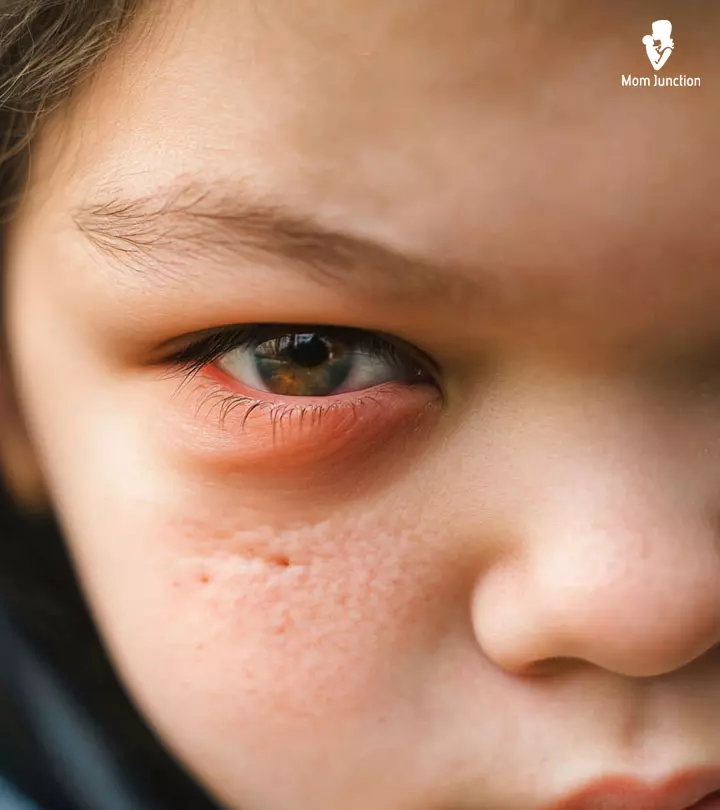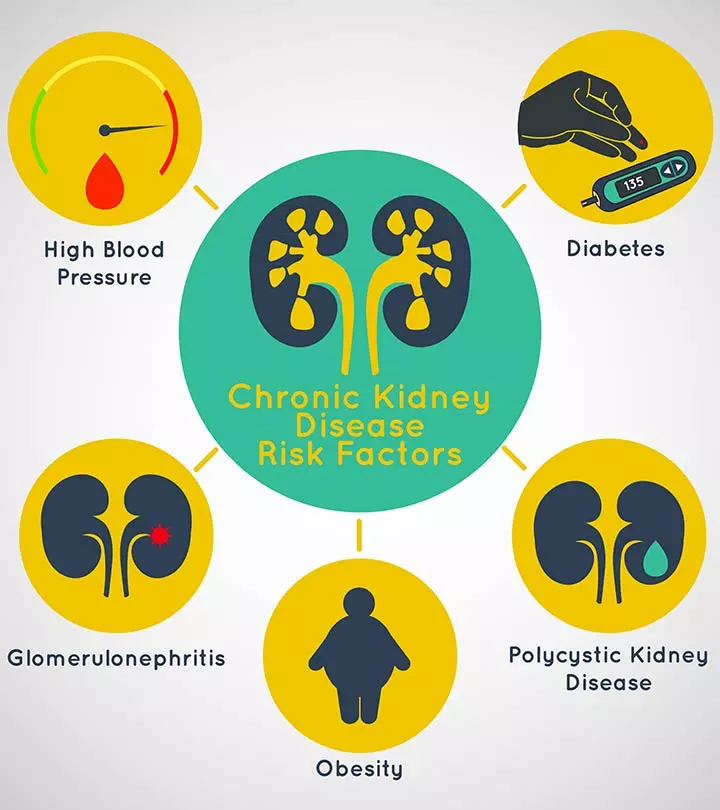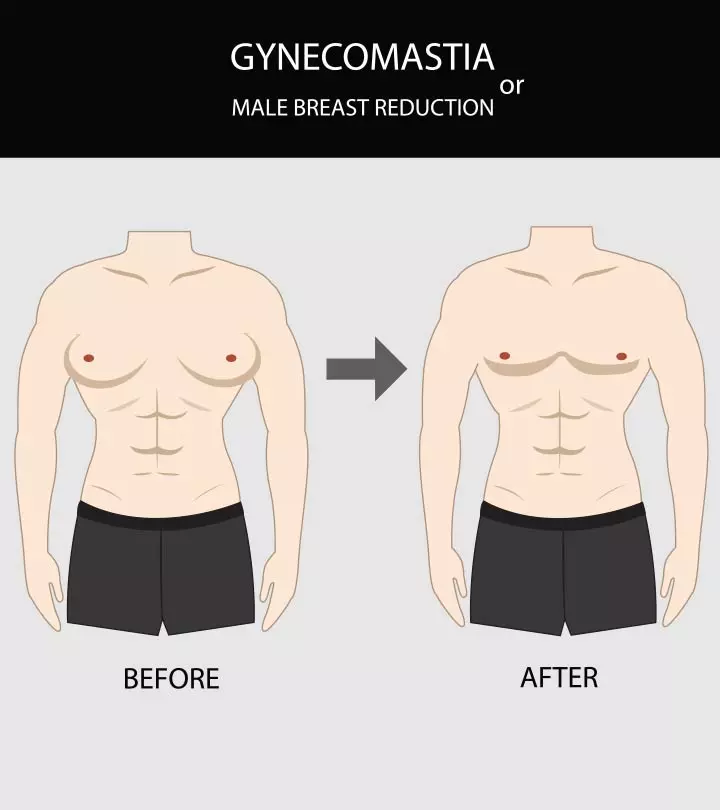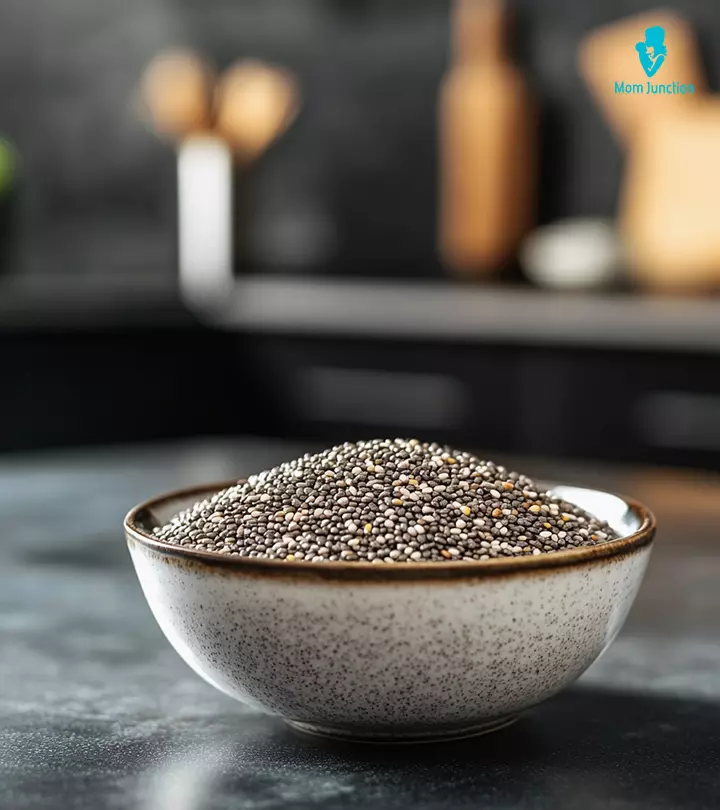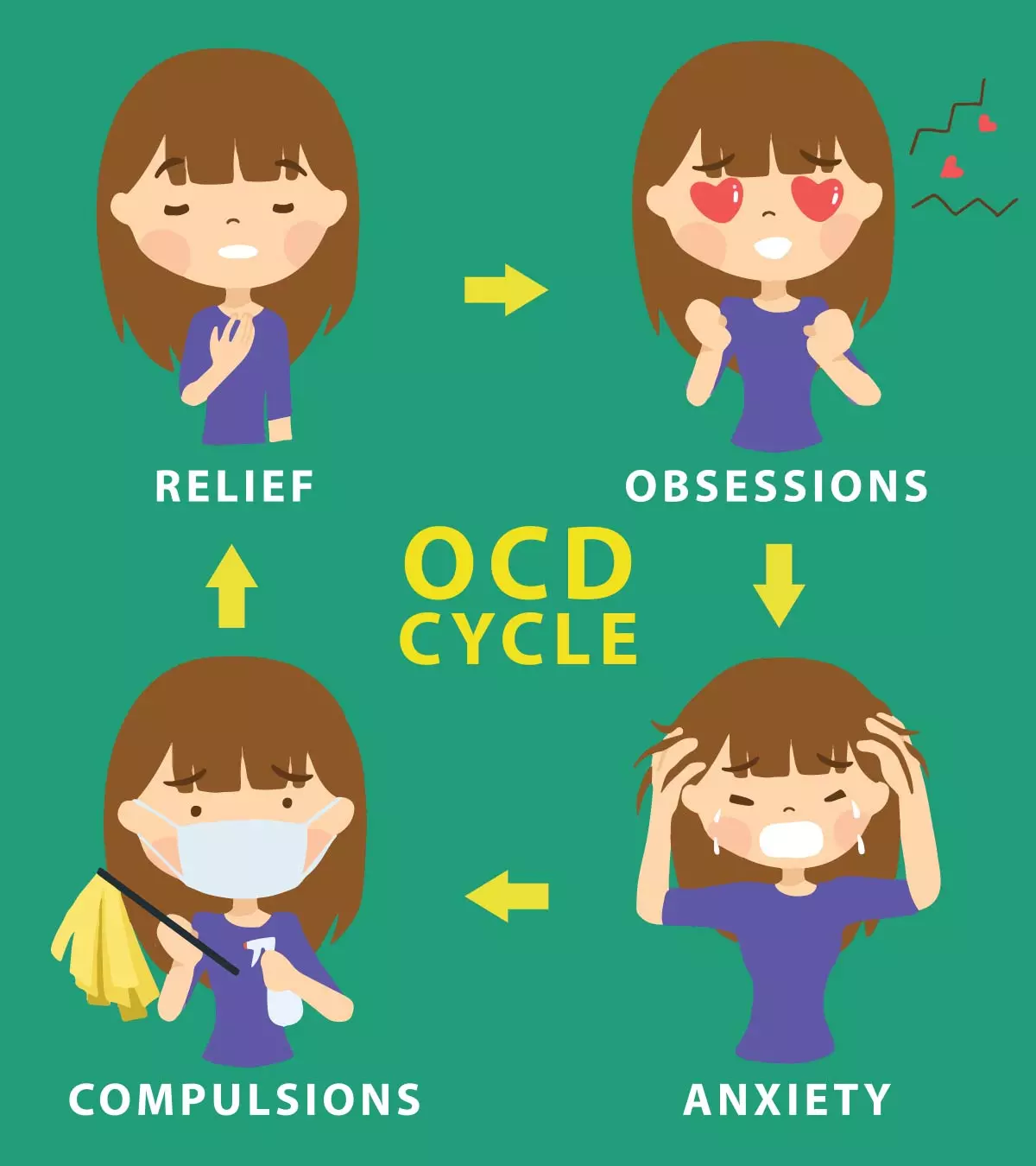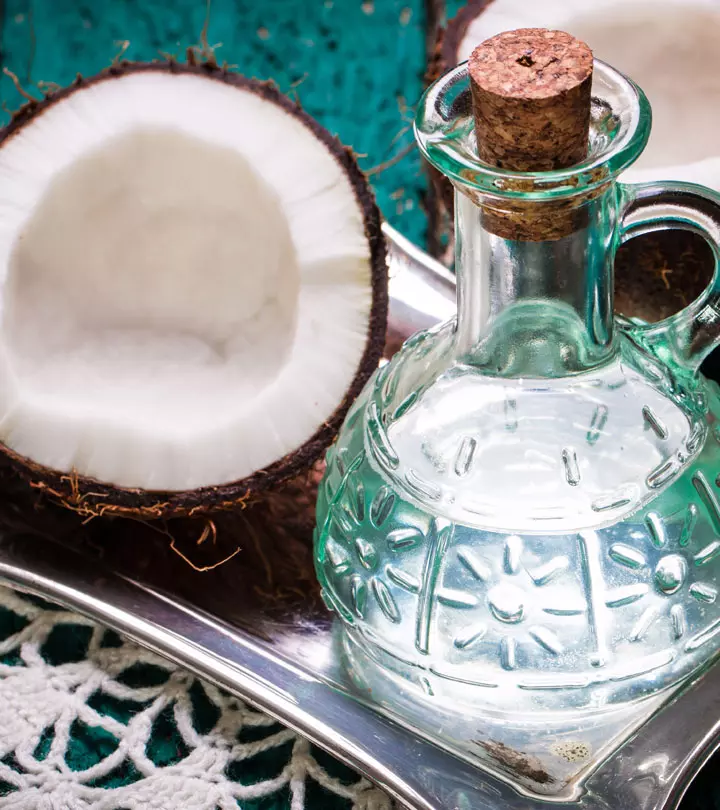
Image: ShutterStock
Coconut oil is commonly used for cooking, skin moisturization, and hair oiling in tropical regions. Even research shows that consuming coconut oil is beneficial for children (1). If you want to try coconut oil for kids, use it in small amounts if they have not had it earlier. But before feeding coconut oil to your child, consult a pediatrician if your child has a family history of coconut allergy or is allergic to tree nuts such as hazelnuts. Read on as we tell you more about the possible benefits of coconut oil for children and the side effects it may cause.
But before feeding coconut oil to your little one, consult a pediatrician if your child has a family history of coconut allergy or is allergic to tree nuts such as hazelnuts. Read on as we tell you more about the possible benefits of coconut oil for children and the side effects it may cause.
Key Pointers
- Coconut oil has high levels of saturated fat with antioxidant properties.
- It can prevent tooth decay in children, making it a natural remedy for oral health.
- Coconut oil is highly beneficial for the skin and hair health of kids.
- Children with allergies and high cholesterol levels should avoid consuming coconut oil.
Is Coconut Oil Healthy To Use For Children?

The uses of coconut oil are either topical or dietary. There are conflicting views on the dietary use of coconut oil. According to the Harvard T.H. Chan School of Public Health, coconut oil is known to contain 80 to 90% of saturated fat (2) (3). It is slow to oxidize and has antioxidant properties.
However, according to the Pennington Biomedical Research Center, the unique fatty acid composition of coconut oil does not seem to increase the risk of heart disease (4). The American Academy of Pediatrics counts coconut oil as a healthy fat and suggests adding it to a child’s diet for optimum nutrition (5). The academy’s suggestion may indicate that moderate consumption of coconut oil could be healthy for children.
The topical use of coconut oil seems to offer some benefits. The oil is considered a good moisturizer for hair and skin (2). It is rich in antibacterial agents such as vitamin E and contains trace amounts of iron, calcium, and zinc. Thus, increases the child’s immunity development and promotes the immune system. A few fatty acids found in coconut oil may have antifungal, antibacterial, and antiviral properties (4). It contains omega-6 fatty acids but no omega-3 fatty acids. Studies further suggest that coconut oil, rich in healthy fats, may boost metabolism and help manage metabolic disorders like obesity and diabetes in children (10).
Dr. Walter C. Willett, physician and nutrition researcher at the Harvard School of Public Health, states that coconut oil is safe and enhances the flavor of foods when used correctly and consumed occasionally. He adds that coconut oil contains high levels of lauric acid, which possibly helps increase high-density lipoprotein (HDL), also known as ‘good cholesterol’ in the body (15).
 Quick tip
Quick tipWhat Are The Likely Benefits Of Coconut Oil For Children?
Coconut oil is known to have several potential benefits, from enhancing food flavor to providing healthy fats. Here are some uses and advantages of coconut oil for children:
- Dental hygiene: Dr. Darmin Brady, a researcher at the Microbiology Society, suggests using ‘enzyme-modified coconut oil’ in dental hygiene products as an alternative to chemical additives. Coconut oil could be a natural alternative to fight the bacteria that causes tooth decay (6). According to a recent WHO report, an alarming 514 million children suffer from caries of primary teeth. Parents could consider rubbing a few drops of coconut oil on their children’s teeth to address this issue, which might help improve oral health alongside regular dental care practices. Furthermore, some studies suggest that using coconut oil for oil pulling may help prevent plaque and plaque-induced gingivitis (16). However, more research is needed to confirm this benefit in children.
 Research finds
Research finds- Moisturizer: Skin issues such as eczema require regular moisturization. It is important to keep the skin moist in case of eczema. Coconut oil could work as a moisturizer to provide relief (7) (8). Coconut oil can also help heal sunburn, cracked cuticles, and heels in children (17). A study suggests that coconut oil can block 20 percent of the sun’s ultraviolet rays, making it a notable ingredient in sunscreens among fixed oils (18).
- Insect repellant: According to a research study, coconut oil includes fatty acids that work as a repellent to keep mosquitoes and flies away (9).
- Hair health: Coconut oil could help moisturize the scalp, just like the skin. Gently massaging the child’s scalp with coconut oil not only improves hair health but also reduces protein loss (17). Furthermore, research suggests that the oil may be used for reducing hair lice (3).
- Skin health: Coconut oil has antifungal, antimicrobial, and antibacterial properties that could provide relief for acne, wounds, or injuries on the skin (10). You could also use coconut oil for babies. It is beneficial for massaging the baby’s body as it possesses anti-inflammatory properties. You may gently apply a few drops of coconut oil on the area of the wound, rash, or injury. It helps in the healing process.
Donna Joseph, a mother, shares her experience using coconut oil for her baby’s dry skin. She explains, “My son was born with really dry skin. When he was about six months old, it started to become a problem because he got irritable with his skin. My sister-in-law got in touch with me and said I should use coconut oil. I started using coconut oil all over his skin. I’m so grateful for the tip that she told me. She said, ‘Don’t stop using it, even though it might not be working straight away. Don’t stop using it.’ Within about six to eight months, I was able to stop using so much coconut oil, and my son’s skin started to heal (i).”
- Brain and heart health: The fatty acids in coconut oil may be beneficial to the heart and brain function (1) (2). According to studies, consuming virgin coconut oil could enhance cognitive abilities such as memory and focus.
- Coconut oil that contains medium-chain triglycerides is quickly absorbed and digested by the body to be used as energy, thereby promoting satiety and preventing fat storage (2). Additionally, coconut oil also supports better absorption of vitamins, minerals, and amino acids (11).
 Research finds
Research finds
Do not use coconut oil as a replacement for a doctor’s advice or prescribed medication. Ask your child’s doctor or a pediatric nutritionist for the quantity of dietary coconut oil your child can take.
Are There Any Possible Side Effects Of Coconut Oil For Children?
There are no significant side effects of coconut oil for children. However, some of the rare ones include (12) (20):
- Some children allergic to tree nuts and peanuts might also be allergic to coconut.
- In rare cases, children who are intolerant may experience sensitivity reactions like a sore throat and weakness.
- The high usage of coconut oil may occasionally cause gastrointestinal discomfort.
- Children who are overweight or have high cholesterol may consider avoiding coconut oil due to the oil’s cholesterol levels.

Frequently Asked Questions
1. How much virgin coconut oil should a child take daily?
A child may take one or two teaspoons of virgin coconut oil daily. However, it might depend on the child’s weight and health and it is always best to consult a pediatrician before administering it.
2. Can we drink coconut oil straight?
Coconut oil has 100% fats, with 80-90% saturated fats, and too much of it can increase the blood cholesterol level (2). Therefore it is not advisable to consume coconut oil directly; instead, mix it with food.
3. How do I get my child to eat coconut oil?
You can add coconut oil in small amounts to cook the food. Alternatively, you may add oil to dishes, such as oatmeal, baked goods, and smoothies. Remember, a child takes time to develop a taste for food. So, be patient and let your child get used to the taste of coconut oil gradually. Also, you can encourage your child to eat coconut oil by eating coconut yourself and setting the right example.
What type of coconut oil is best for children?
Virgin coconut oil is a better choice for children because it has more nutrients such as antioxidants and is free from chemicals found in refined coconut oil (13). For extra safety, always opt for organic varieties.
5. Can coconut oil help treat infections?
Coconut oil possesses antifungal, antiviral, and antibacterial properties, helping prevent bacterial, viral, and fungal infections in children. Research also suggests it may aid in treating lipid-coated viruses like Epstein-Barr, influenza, pneumovirus, and hepatitis C, potentially aiding in infection control (10) (21).
6. How can I incorporate coconut oil into my child’s diet?
Coconut oil can be a nutritious addition to your child’s diet when used in moderation. You can substitute it for butter or vegetable oils when sauteing vegetables or mixing it into warm cereals. It also works well in baked treats like muffins and cupcakes (22). However, introduce coconut oil gradually in small amounts and consult a doctor to ensure it’s safe and suitable for your child.
Coconut oil for kids has several benefits. It is known to help grow hair faster or denser and has other benefits. However, there is no scientific evidence to prove most of its assertions, including that it darkens or lightens the skin and helps hair growth. When consumed in moderation and used as guided, pure coconut oil can benefit a child. But if you are doubtful about its use, you must consult the baby’s doctor. Ensure to inform a doctor about any symptom you see post its usage, such as a skin rash or inflammation.
Infographic: Positive And Negative Effect Of Coconut Oil On Children
In addition to being used in cooking, coconut oil can be applied topically and in various herbal medicines. However, it may also have some side effects. Check out the infographic below to learn about some benefits and side effects of using coconut oil for children. Illustration: Momjunction Design Team
Illustration: Possible Health Benefits Of Coconut Oil For Kids

Image: Dall·E/MomJunction Design Team
Personal Experience: Source
MomJunction articles include first-hand experiences to provide you with better insights through real-life narratives. Here are the sources of personal accounts referenced in this article.
i. How coconut oil helped to heal my baby’s skin;https://www.youtube.com/watch?v=G8Vi2ocTNWU&feature=youtu.be
References
1. N. Mikolajczak, Coconut Oil in Human Diet – Nutritional Value And Potential Health Benefits; Journal of Education, Health and Sport (2017)
2. Coconut oil; Harvard T. H. Chan School of Public Health
3. Coconut oil; Nutritionfacts.org
4. Health Benefits of Coconut Oil; Pennington Biomedical Research Center (2013)
5. Preschoolers’ Diets Shouldn’t Be Fat-Free: Here’s Why; American Academy of Pediatrics
6. Coconut Oil Could Combat Tooth Decay; Microbiology Society (2012)
7. Atopic eczema – Treatment; National Health Service (2023)
8. M. T. Evangelista et al., The effect of topical virgin coconut oil on SCORAD index, transepidermal water loss, and skin capacitance in mild to moderate pediatric atopic dermatitis: a randomized, double-blind, clinical trial; International Journal of Dermatology (2014)
9. J. J. Zhu et al.; Better than DEET Repellent Compounds Derived from Coconut Oil; Scientific Reports (2018)
10. A. Gupta et al.; Coconut Oil: The Healthiest Oil On Earth; International Journal of Pharmaceutical Sciences and Research (2010)
11. Health Benefits of Coconut Oil; Coconut Development Board (Ministry of Agriculture & Farmers Welfare, Govt. of India)
12. L. M. Stutius et al.; Characterizing the Relationship Between Sesame, Coconut, and Nut Allergy in Children; Pediatric Allergy and Immunology (2010)
13. A.M. Marina et al.;Virgin coconut oil: emerging functional food oil; Trends in Food Science and Technology (2009)
14. Faizal C Peedikayil;Is coconut oil good for oral health? A review; Journal of Health Research and Reviews (2019)
15. Ask the doctor: Coconut oil and health; Harvard Health Publishing
16. Faizal C Peedikayi et al., Effect of coconut oil in plaque related gingivitis — A preliminary report; Nigerian Medical journal (2015)
17. Busting the myth on coconut oil; Dayton Children’s
18. Ramamoorthy Logamorthy and Kaliaperumal Karthikeyan; Coconut oil – Nature’s own emollient; Indian Journal of Dermatology, Venereology and Leprology (2024)
19. Retno Setyo Iswati and Indria Nuraini; Effectiveness of virgin coconut oil (VCO) in increasing immunity in Stunting Toddlers; Universitas Wiralodra (2023)
20. Margaret Harris et al., Does Coconut Oil Have Side Effects; The FASEB Journal (2015)
21. Laurene Boateng et al., Coconut oil and palm oil’s role in nutrition, health and national development: A review; Ghana Medical Journal (2016)22. Coconut Oil; American Society for Nutrition.
Community Experiences
Join the conversation and become a part of our nurturing community! Share your stories, experiences, and insights to connect with fellow parents.
Read full bio of Dr. Mubina Agboatwalla
Read full bio of Swati Patwal
Read full bio of Rohit Garoo
Read full bio of Dr. Joyani Das





